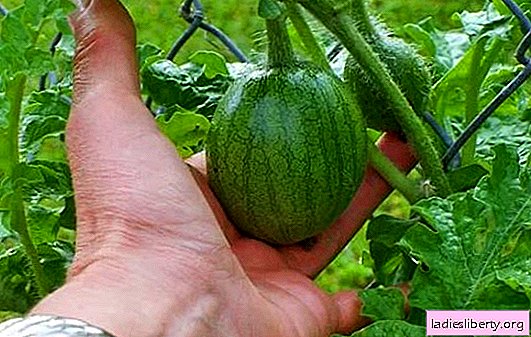
Adenoids are a widespread infectious disease of the nasopharynx in children aged 3 to 8 years. If the child is often tormented with a persistent runny nose, medications do not help to eliminate this problem, then, most likely, there is inflammation of the adenoids. In addition to traditional medical methods of treating such an ailment, for example, medicinal, surgical methods, Thuja oil copes with the task quite effectively.
Features of the composition of thuja oil with adenoids and its medicinal properties
Adenoiditis disease can occur in children aged 1 to 14 years. The nasopharyngeal tonsil of the child’s body is constantly trying to resist various infectious diseases. As a result, in most cases it begins to grow, the nasal lumens partially or completely overlap, and cold air through the mouth begins to enter the airways. Enlarged adenoids have loose tissue, which is an ideal place for the reproduction of various bacteria. Because of this, children begin to suffer much more often from bronchitis, tonsillitis, pharyngitis, tonsillitis, and a chronic stage of rhinitis develops.
Even in the 19th century, the healing properties of cones of coniferous evergreen thuja were discovered. Since then, the extract from the plant has been widely used in the manufacture of homeopathic medicines, as well as for the treatment of tuberculosis, asthma, respiratory diseases and colds, to stop hemorrhages, increase the general tone of the body and restore strength.
The composition of the resinous oil is represented by such main beneficial ingredients:
• tannins;
• flavonoids;
• pinipicrine;
• tuin;
• aromadendrine;
• sawn;
• pinin;
• saponins;
• aromatic resins;
• toxifolin.
In addition to these substances, the composition of thuja is rich in vitamins and various trace elements, which, acting in concert, help fight children with adenoids. Thuja oil with adenoids also serves as a prophylactic and prevents the development of other diseases, such as the effects of inflammation of the nasopharynx.
Thanks to this rich composition, the following powerful properties of arborvitae oil are manifested:
• antimicrobial;
• antiseptic;
• healing;
• pain medication;
• expectorant;
• anti-inflammatory;
• tonic.
Thuja aromatic oil has a vasodilating effect on the body, which contributes to the speedy restoration of breathing through the nose. In this case, thuja oil is able to act as the strongest immunostimulant, strengthen immunity, which positively affects the existing adenoid disease. The processes of restoration of the epithelium are accelerated, the flow of chemical processes in the nasopharynx is normalized, so that it is even possible to get rid of chronic sinusitis.
Indications for the use of thuja oil for adenoids in children
It is necessary to begin treatment with an extract of coniferous arborvitae strictly after the official confirmation of the diagnosis. The main signs of the presence of adenoids in children are:
• problems with breathing through the nose;
• constantly chasing a runny nose;
• defects in sound pronunciation in the form of nasal voices.
If such symptoms are found in children, a medical examination is necessary. It is very important to correctly determine the stage of development of the disease: in the initial stages, thuja oil is advisable to use, in the later stages only surgical intervention will help to solve the problem.
There are three main stages in the development of adenoids in children:
• Tonsil enlargement covers 30 to 60% of the lumen of the nasopharynx. Symptoms such as snoring, wheezing, and an open mouth during sleep serve this purpose;
• tonsils block more than 60% of the inner opening of the nasal passages. Symptoms: talking in the nose, severe snoring, constant breathing through the mouth;
• Tonsils enlarge so much that they completely block the posterior nasal passages. Symptoms are the same as in the previous stages, but apnea, inflammation and ear diseases, deformation of the skeleton of the skull in the most advanced stages may additionally develop.
Thuja oil with adenoids of the first two stages will help eliminate the symptoms of the disease, strengthen immunity and prevent the re-development of the disease.
Ways to use thuja oil with adenoids
Aromatic thuja oil with adenoids in children is used quite often due to the high effectiveness of the drug. In just a few days of fruitful treatment, the first results appear: the state of the nasopharynx improves, the course of chemical processes normalizes, and damaged epithelial tissue is gradually restored.
Adenoids are treated with homeopathic arborvita oil 15%, which is necessary drip in the nose 2 drops in each nostril. If ether is used for treatment, then it must be diluted with water in a ratio of 1 to 7. In its pure form, ether cannot be used, it is too toxic for the body.
Treating adenoids with thuja oil is a long process. It is necessary to use the oil for at least 1.5 months, then you can take a break for 1 week and resume the treatment course. Before using oil, the nose must be properly prepared. For this, rinses are made with a ready-made tool based on sea salt or home-made saline solution, which is prepared from 1 tbsp. warm water and 1 tsp. table salt.
The effectiveness of the drug used for prevention will depend on the general health of the body, so you can drink vitamins in parallel or strengthen immunity in other ways.
Another effective way to use thuja extract for adenoids is inhalation. The recipe for the preparation of the medicinal composition:
• 200 ml of boiling water;
• 3 drops of arborvitae oil.
Outgoing steam must be inhaled through the nose for 15-20 minutes. You do not need to cover your head with a towel during the procedure.
Some examples of treatment regimens for adenoids in children with arborvitae oil:
1. 2-4 drops of oil should be instilled into each nostril up to 3 times a day. If you use a ready-made pharmacy product from thuja, then you need to use the dosage specified in the instructions. It can be treated in this way for no more than 6 weeks.
2. In a pre-washed nasal cavity, 4 drops of medicine should be dripped in the morning, afternoon and evening. The duration of treatment is 14 days. After it, a break is made for the same period, and the course of treatment is repeated.
3. Additionally, you can use the "Protargol". A couple of drops of the drug should fall into the nasopharynx 2-3 times a day. 15-20 minutes after Protargol, you can proceed to the second stage - instillation of the nose with 2 drops of arborvitae extract for each nostril. According to this scheme, it is necessary to treat adenoids for 1 week. The second week should consist of alternations of Protargol and Argolife with silver ions using the previous technology. The third week repeats exactly the alternations of the first week and so on. The total duration of treatment is 1.5 months.
Aromatherapy with thuja oil for adenoids in children
To alleviate the symptoms of adenoids and allow the child to breathe through the nose, you can put an aromatic lamp with added oil of thuja cones in his room at night.
If the child is at the first stage of the disease, then this method will help to effectively overcome adenoids.
But the method with an aromatic lamp has its own contraindications, use this attribute with caution.
1. Like any medicine, thuja oil can trigger the appearance of allergic reactions.
2. Do not start treatment of children with arborvitae oil, in which there is an individual intolerance to the drug or its components.
3. In the presence of an epilepsy disease, aromatherapy with thuja oil in its pure form is not recommended.
4. Combine the treatment of adenoids with arborvitae oil and other drugs. In this case, there are no restrictions; priority is given to folk remedies. But before any use of this or that drug should consult with your doctor.
What you need to know in advance using thuja oil for adenoids in children
First of all, do not count on oil as a 100% effective remedy against adenoids. Thuja ether is not a panacea, and sometimes it’s sometimes just an inconsequential way to slightly alleviate the symptoms of the disease. One child may feel better after several times using the drug, another after a month of use, the third may not have noticeable improvements at all. Someone oil will relieve adenoids once and for all, but someone simply will not do. Everything is decided individually.
In order not to overdo it with a dose, diluting the oil in its pure form with water, it will be easier to purchase ready-made drugs under the name Thuya DN and Thuya Edas-801 at the pharmacy. They are easy to find in any pharmacy.
If you choose a method of treating adenoids by instillation, it is imperative that the person at this moment is in a lying position. When the drops get into the nasopharynx, it is necessary to remain in this position for at least 10 minutes to evenly distribute the drug through the channels. Very small children usually do not want to lie on their backs, therefore, to instill their noses, you can use the spraying method with an ordinary syringe without a needle nozzle.
Thuja oil can be used as a prophylactic of adenoiditis. It is enough 1 time per month to regularly instill a nose in the children at night before bedtime, having previously washed it with salt water.











